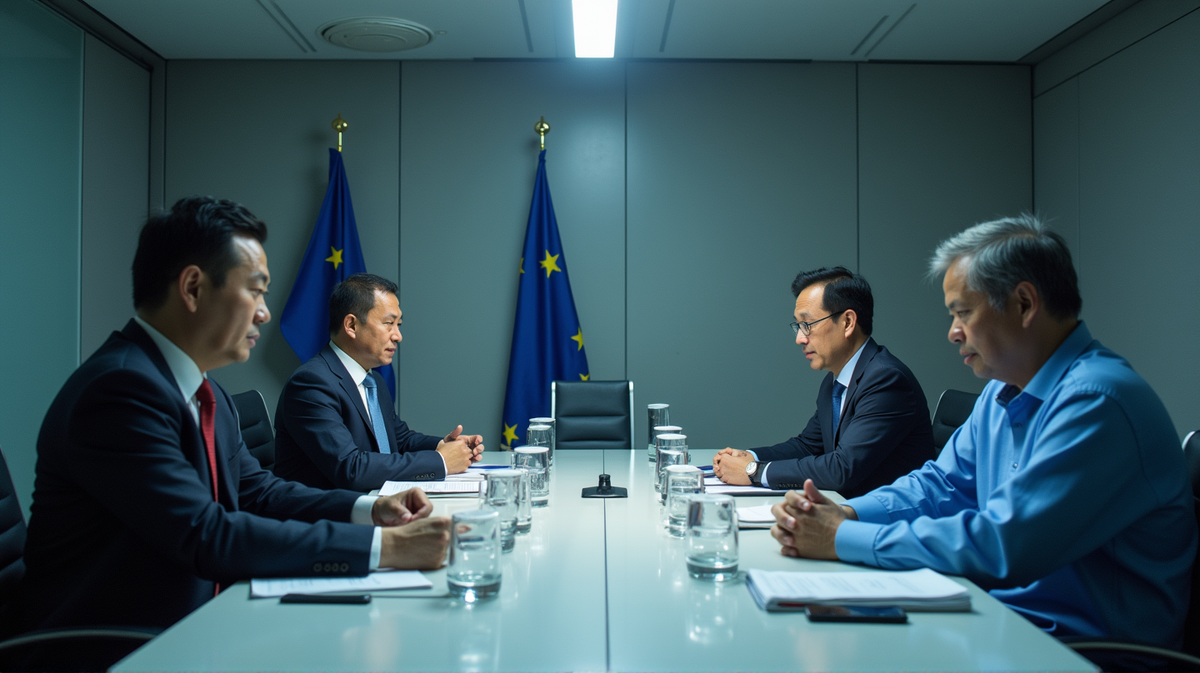Trade Tensions Escalate: China's Retaliatory Ban on EU Medical Contracts
China hits back with its ban on EU firms in medical contracts, intensifying trade tensions. Unresolved economic disputes loom large between China and the EU

In the realm of international trade, every action often meets an equally compelling reaction. In a recent turn of events, China has imposed a retaliatory ban on European Union companies, barring them from participating in key medical equipment contracts. This move is viewed as a direct response to an earlier EU decision to exclude Chinese firms from similar procurement opportunities.
An Eye for an Eye: The Art of Reciprocity
The Chinese finance ministry’s newly announced measure, which took effect as of today, lays down regulations prohibiting EU companies from bidding on contracts exceeding 45 million yuan (€5.3 million). While this excludes negotiations involving Chinese-based EU capital, the decision marks a significant heightening of the trade discord between Beijing and Brussels.
The timing of the ban is particularly notable, as Chinese Foreign Minister Wang Yi has been engaging in diplomatic talks across the EU, attempting to patch up strained relations. This ban, however, seems destined to deepen the divide further.
Unresolved Conflicts: A Trade Deficit Dilemma
The backdrop to this ban paints a broader picture of unresolved economic tensions. According to The Journal, China and the EU have been sparring over a hefty trade deficit, with both sides pointing fingers at protectionist policies obstructing fair competition.
Beyond Medical Deals: A Broader Economic Chess Game
The trade spat over medical equipment is just one piece in a larger puzzle. In recent years, the EU and China have locked horns over several industries, including electric vehicles and renewable energy sectors like solar panels and wind turbines. These ongoing disputes amplify the already existing competitive challenges and geopolitical complexities.
Seeking Dialogue: Bridging the Divide
While the retaliatory measures highlight current tensions, China has persistently advocated for diplomatic dialogues to resolve conflicts. “China has repeatedly expressed its willingness to resolve these disputes through consultations,” emphasized the Chinese commerce ministry. Yet, the lack of substantial progress points to the formidable economic rift that both powers must navigate.
What Lies Ahead: A Future of Uncertainty
As both nations weigh the advantages of economic cooperation against protectionist instincts, the ripple effects on global trade remain significant. How these two economic giants choose to address their differences will undoubtedly shape their futures for years to come, underlining their critical role on the international stage.
This pivotal moment in China-EU relations encapsulates not only the intricacies of trade policies but also the complexities of diplomatic engagements. With the ongoing dialogue and the potential for future negotiations, we are left to anticipate both challenges and opportunities in a globally interconnected economy.





